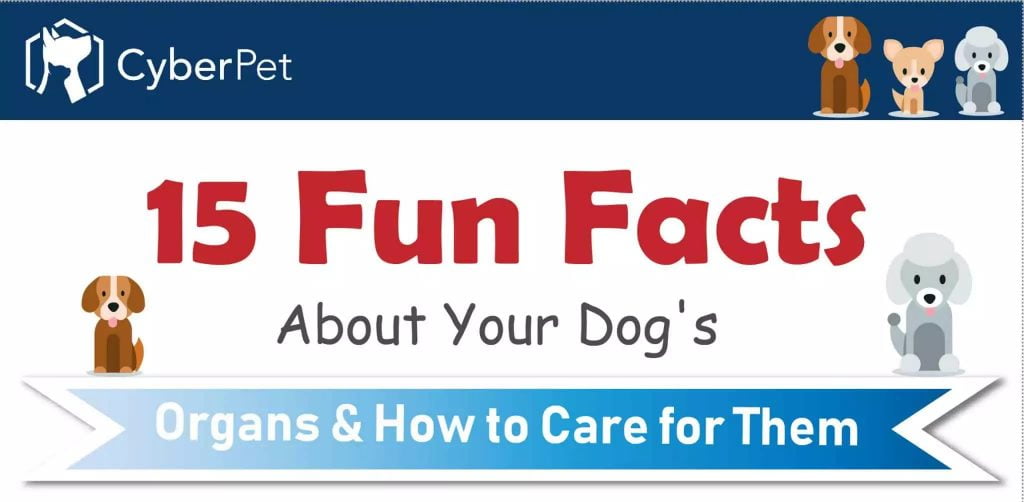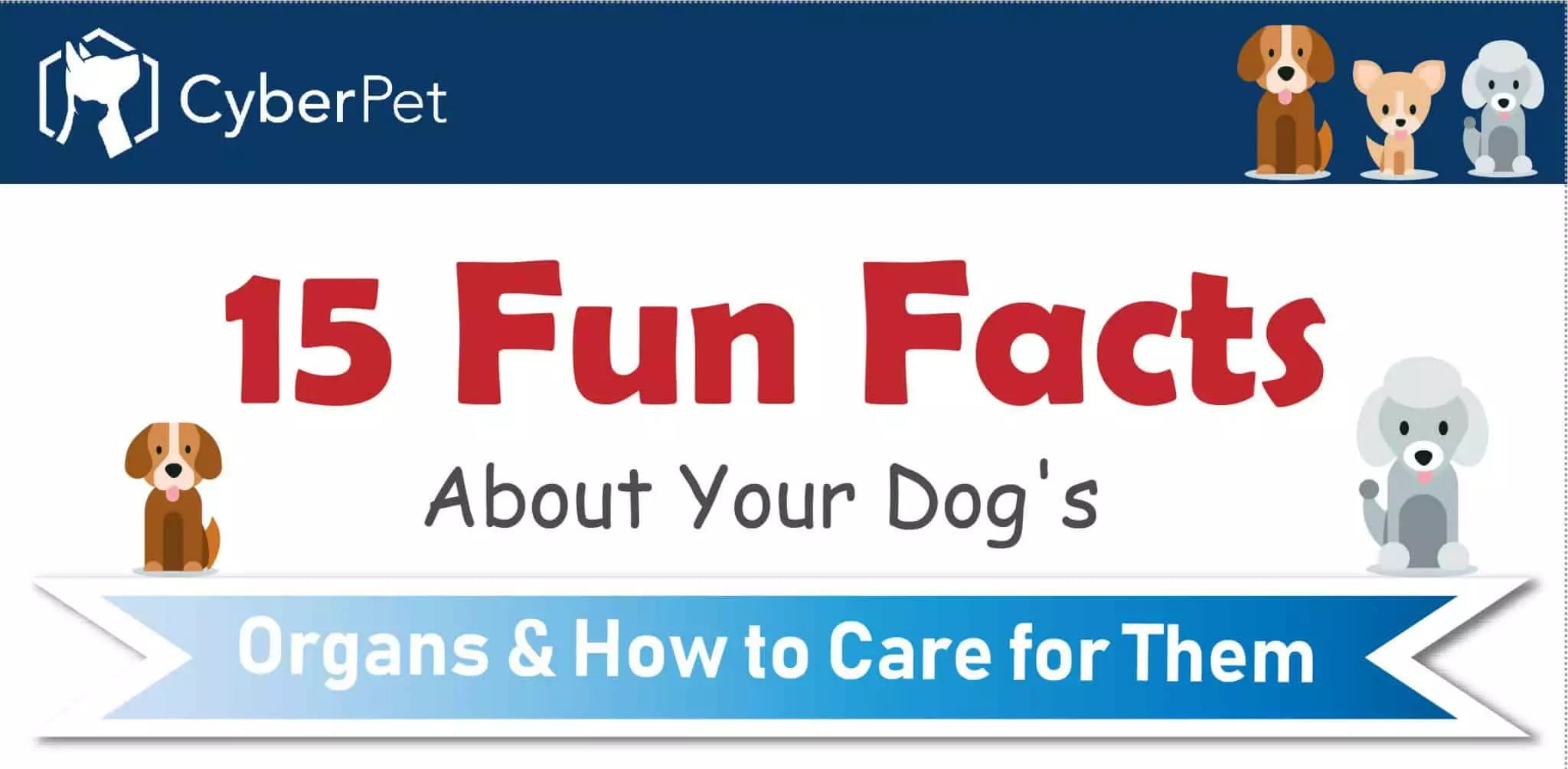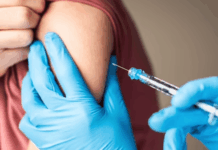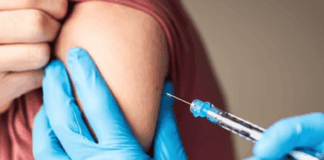
Updated on
Every organ in your dog’s body works to keep them healthy and happy. That’s why it is so important for you to understand the role of these vital organs and body parts and what you can do to best support them.

Every organ in your dog’s body works to keep them healthy and happy. That’s why it is so important for you to understand the role of these vital organs and body parts and what you can do to best support them.
1. Ears
Your dog’s ears provide them with important information about the world around them. Unfortunately, dog ear infections and ear mites in dogs are both common issues that can threaten your dog’s hearing as well as their well being.
While all dogs are susceptible to these types of issues, dogs with lop ears are most at risk. To avoid these issues, make sure to feed your dog a quality diet and eliminate any allergens from their food and environment. You’ll also need to clean their ears periodically, especially if you notice they are red, inflamed, or have a foul odor.
While a consistent ear cleaning routine and the right diet will help avoid infections, more severe ear problems like mites and ear flap hematomas will need to be evaluated and treated by your vet.
2. Eyes
Another important sense that your dog relies on is their sense of sight. And, much like the ears, your dog’s eyes are prone to all types of issues including cataracts, injuries, conjunctivitis, and eyelid deformities.
Some of these problems are caused by infection and trauma, while others are genetic.
Cherry eye in dogs is one of the most common eyelid deformities and occurs when the third eyelid prolapses and is visible over the dog’s eye. This is most common in flat-faced breeds.
Many owners also wonder “can dogs get pink eye like their human counterparts?” Conjunctivitis, or pink eye, is very common in dogs and is highly contagious between canines as well.
To avoid some of these dog eye problems it is important that you keep the area around the eyes clean and watch for any sign of redness or irritation. If you notice an issue with your dog’s eyes, it is best to take them to the vet for treatment.
3. Brain
Your dog’s brain controls all aspects of their body including movement, breathing, heart rate, and emotions. A dog suffering from brain abnormalities can show a variety of symptoms from suddenly increased aggression to tremors and mobility issues.
The most common issues of the brain and neurological system are seizure, inflammatory brain disease, swelling, and tumors.
While some neurological disorders can be caused by toxins or trauma, many are genetic in nature. King Charles spaniels, shepherds, and retrievers all have predispositions to certain brain problems.
While it is not always possible to prevent brain diseases, working closely with your vet can help you catch problems before they become too severe.
4. Mouth
Dog mouth problems are surprisingly common and can be caused by anything from abrasions, infection, or chewing on inappropriate items, to a genetic predisposition for oral cancer.
Certain breeds, like the German shepherd, golden retriever, and cocker spaniel are all at increased risk for mouth cancer.
Puppies and excessive chewers most often suffer from mouth infections and ulcers as they are more likely to suffer injuries to their mouths.
Chewing is a natural behavior for dogs. When dogs are bored, lonely, stressed or anxious, they can start chewing. Getting your dog a kennel crate may be the tool of choice. Take a look at this article about the best dog crates for separation anxiety pooches for more information.
In addition, to keep your dog’s mouth healthy, be sure to keep sharp and inappropriate items out of reach and check their gums, tongue, and the top of their mouth frequently. Look for signs of redness, swelling, and strange growths.
Have your vet examine any areas that look irritated or unusual.
5. Teeth
Periodontal disease is one of the most common canine ailments and one of the most serious dog dental problems. Dogs can also suffer from broken teeth, tooth infections, and cavities, all of which can contribute to worsening periodontal disease.
Breeds with underbites, overbites, and teeth that do not align are at the highest risk for teeth issues. But all dogs are likely to suffer from these common dental problems if they don’t receive proper care from you.
Brushing your dog’s teeth daily with a dog-specific toothpaste will help fight infection and kill bacteria that cause problems. Dog’s with more severe dental disease, broken teeth, or infections, will most likely need a professional dog teeth cleaning performed by your vet.
6. Heart
Taking care of your dog’s heart is one of the most important roles you play in increasing your dog’s life expectancy. While some heart issues are preventable, like certain heart diseases and heartworm, others, like dog heart murmurs and birth defects, are not.
When heart problems are left untreated, they can often lead to congestive heart failure in dogs. These types of issues are most often seen in large breed dogs, but also occur in bulldogs and other breeds with genetic predispositions.
Providing your dog with a quality diet high in animal proteins is the first step to caring for their heart. To use diet to fight heart disease in your large breed, check out this article.
Using heartworm preventative is also a must in certain areas, while yearly vet checks are key to catching heart defects and problems before they get worse.
7. Liver
Your dog’s liver is key in removing toxins from their bloodstream. So it is no surprise that the most common liver problems are caused by the ingestion of poisons and toxic material.
Fibrosis and liver disease in dogs can be caused by exposure to chemicals in medications and poisonous plants and food, while chronic hepatitis and infections are caused by various processes and are sometimes breed specific.
Labs, Rottweilers, Chihuahuas, and older dogs are most susceptible to liver problems. To avoid liver problems in dogs, have your dog’s blood checked while they are on medication and make sure to keep attractive toxins like chocolate, antifreeze, and poisonous plants out of reach.
8. Stomach
Your dog’s digestive tract can suffer from a host of problems including those caused by ingesting tainted water or bad food like worms, gastritis, and giardia, as well as more inherent problems specific to certain breeds like IBD and bloat.
While finding a mess on your carpet is never fun, an acute dog upset stomach is typically less problematic than things like gastritis and bloat. These types of problems are most common to deep-chested breeds as well as shepherds, collies, and golden retrievers.
To reduce the odds of bloat in dogs, don’t allow your dog to be active after they eat and feed only small portions of kibble at a time.
IBD in dogs will need to be diagnosed and treated by your vet. Dogs with IBD symptoms may benefit from a dog food made for sensitive stomachs.
9. Kidney
Your dog’s kidneys are responsible for filtering out waste products from their blood and removing them from the body in the form of urine.
Much like the liver, the kidney is prone to damage from toxins and medications. This kind of damage can lead to kidney disease and even kidney failure in dogs.
Kidney problems can also have a hereditary component with breeds like cocker spaniels and bull terries being especially prone to renal failure and other diseases of the kidney.
To keep your dog’s kidneys performing their best, make sure to keep toxic chemicals, food, and plants out of reach. You also want to supply plenty of fresh water to help your dog stay hydrated.
Early signs of kidney disease in dogs include increased thirst and urine production. If your dog shows these signs or more advanced symptoms like weight loss, very bad breath, and vomiting, take them to the vet right away.
10. Skin & Coat
Dog skin conditions and itching are one of the most common reasons dogs go to the vet. This is no surprise considering your dog’s skin is the largest organ of the body and responsible for keeping irritants from the environment out of their system.
Dermatitis, hot spots, mange, mites, and infections are all common dog skin issues. While all dogs are susceptible to these issues, goldens, labs, Dalmatians, and setters are highly prone to them.
Dog skin allergies are responsible for many of these problems and can be caused by diet or environmental allergens.
Feeding a quality diet, eliminating allergens, and using flea and tick treatments as needed are all ways you can protect your dog from itchy, painful skin problems. Read this article if you would like to learn more about supporting your dog’s skin health through diet.
11. Muscles
Your dog’s muscles are an important piece of their musculoskeletal system and they allow your dog to move around and help them digest their food. Injuries to the muscles are one of the most common causes of lameness and pain.
The muscles can also suffer from neurological issues like myopathy and myositis, as well as certain cancers.
Labradors, Great Danes, and highly active dogs are all prone to muscle injury and illness. To avoid many of these issues, always make sure to ease your dog into activity and keep them at a healthy weight.
You also never want to play with your dog on slick surfaces that may cause them to fall.
12. Bone
Your dog’s bone structure is the second major player in their musculoskeletal system.
Like muscles, bones are prone to injury but just as often suffer from deformities, cancer, and metabolic disorders. Large breed dogs are most susceptible to most of these issues.
Bone disease in dogs is often hereditary, but factors like diet, birth defects, and injury can also lead to bone issues.
To help avoid preventable bone problems, always feed large breed puppies a large breed specific puppy food to allow for proper bone development. You can find more information on feeding size-appropriate food in our article on the best puppy foods.
If you ever notice your dog limping or they appear to be in pain, take them straight to the vet. Broken bones need to be set right away to prevent deformities and bone cancer has a better prognosis if caught early.
13. Joint
Dogs can suffer from a variety of joint issues such as dysplasia, dislocation, and arthritis. While dislocation is caused by trauma, hip and elbow dysplasia and arthritis are often hereditary.
Large breeds, labradors, and other popular breeds are the most at risk for dysplasia. While very active and overweight animals are at greatest risk for sore joints and joint injury.
To help your pup avoid joint pain, make sure to keep them at a healthy weight by feeding a weight management diet if needed and use an orthopedic dog bed as your pup ages.
Arthritis in dogs can often be helped with dog joint supplements. The most common joint supplements for dogs are glucosamine, chondroitin, and omega-3s.
14. Paws
Most dog owners are familiar with dog paw problems like infections, abrasions, broken toenails, and foreign bodies. These types of problems usually occur when your dog injures themselves or gets something stuck in their foot.
It is also possible for your dog to suffer swelling and redness of the paw due to allergies.
To keep your dog’s paws safe from injury, make sure to utilize dog boots in very hot and cold weather.
Check your dog’s paws often for signs of redness and swelling. Dog paw infections can spread to the blood or cause lasting foot problems if not caught early.
To prevent your dog from breaking a toenail or getting ingrown toenails, make sure to trim your pup’s nails about every six weeks. If you are unfamiliar with how to trim dog nails or are looking for the right equipment, check out our article on the best dog nail clippers.
To find more information on how to cut your dog’s nail, check out our article about 10 Most-Googled Dog Questions (Question 9).
Keep Your Dog Healthy From the Inside Out
By striving to cater to the health of each of your dog’s organs and body parts, you can help your whole dog live a long, happy life free from disease.
Source: www.cyberpet.com
Disclaimer: We at Prepare for Change (PFC) bring you information that is not offered by the mainstream news, and therefore may seem controversial. The opinions, views, statements, and/or information we present are not necessarily promoted, endorsed, espoused, or agreed to by Prepare for Change, its leadership Council, members, those who work with PFC, or those who read its content. However, they are hopefully provocative. Please use discernment! Use logical thinking, your own intuition and your own connection with Source, Spirit and Natural Laws to help you determine what is true and what is not. By sharing information and seeding dialogue, it is our goal to raise consciousness and awareness of higher truths to free us from enslavement of the matrix in this material realm.
 EN
EN FR
FR


























